SPOTLIGHT ON RESEARCH
Sustainable aeronautics tackles complex challenges that transcend disciplines, sectors, and nations. Developing innovative solutions requires global collaboration between industry, government, and academia. WISA’s work is rooted in partnerships with interdisciplinary researchers, organizations, and government agencies from around the world. Together, we combine our strengths and expertise to identify priorities, catalyze research, and develop evidence-based solutions that reinforce all three pillars of sustainability: social, environmental, and economic.
Industry Research Partnerships
WISA is actively working to build our network and partnerships with leading corporations, non-profits, governments, and other organizations around the world whose activities align with our vision of a sustainable future for aeronautics.
$1M+
in industry sponsorships
2
completed RFPs matching partners with research teams
12
industry partnerships, including airlines and leading aeronautical organizations
35+
companies engaged in meetings with WISA leadership
12
global leaders in aeronautics on our Advisory Committee

What our partners are saying
WISA has ongoing research partnerships with NAVBLUE, an Airbus Company, and CAE. We asked representatives from both companies to share their perspectives on the value of partnership with WISA, the sustainability challenges they’re facing and what the future holds. Here’s what they had to say.
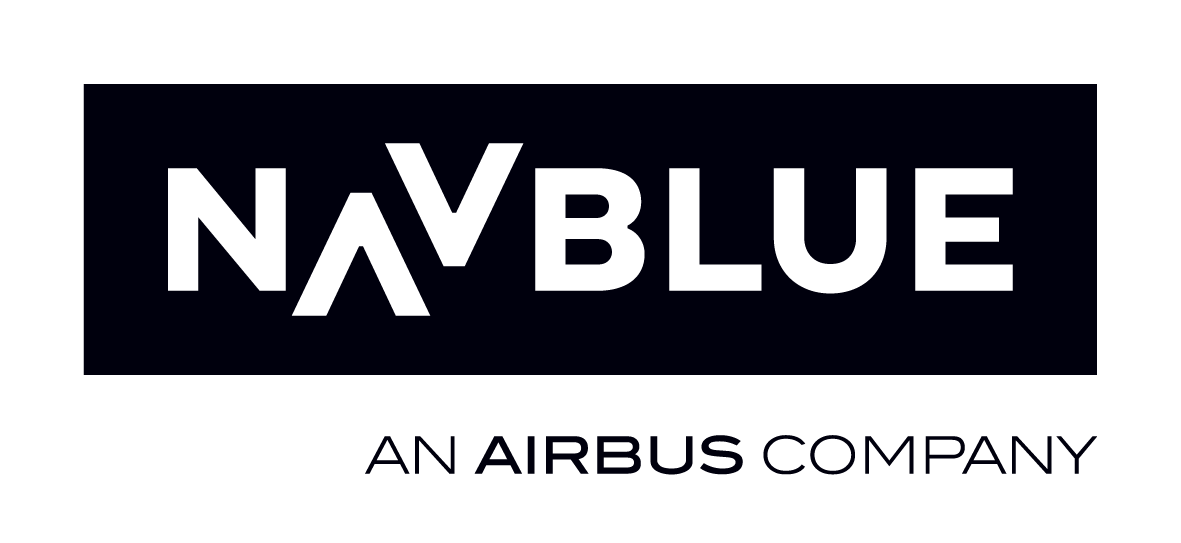
NAVBLUE
Dr. Logan Jones, Analytics Manager, N-Flight Planning
In 2021, NAVBLUE engaged in a five-year partnership with WISA to advance research to support operational sustainability in aviation. Coming out of an unprecedented economic crisis while simultaneously needing to progress towards aviation’s net-zero carbon emissions target means that all aspects of operations must be examined. There is a need to improve operational efficiency, fuel efficiency and network predictability to ensure airlines are economically and environmentally sustainable.
While meeting net-zero targets will require step changes in technology, the role of infrastructure and operations is expected to contribute 11% of emissions reductions. These contributions can be made today, without waiting for technological change. NAVBLUE’s partnership with WISA is key to connecting academia and industry to unlock the optimization potential of aviation. We look forward to working with Waterloo to develop and use the latest in optimization algorithms, big data analysis techniques, artificial intelligence applications, robust planning under uncertainty methodology and more.

CAE Civil Aviation Training Solutions
Dr. Richard J. Kennedy, Head of Learning Science
Collaboration with universities has always provided CAE with a scientific perspective on how we should tackle our most pressing business issues and address the needs of our customers. The University of Waterloo has the pedigree and talent to provide us with this unique scientific perspective. Truly innovative solutions only arise when diverse teams engage together in creative thought. The University is well known for these attributes and being a world leader in aviation-related research and technology. Working hand-in-hand with CAE, an industry leader, provides great overall value to the Canadian aerospace sector.
Worldwide, the aviation industry is facing short- and long-term sustainability challenges. One of these challenges is establishing a pipeline of new aviators for the next generation of aircraft while also continuing to develop and enhance competencies for safe flight operations in the pool of experienced pilots. The way in which the pilots of tomorrow learn and train will be very different. Combined with existing training material, new simulation technologies will form a future learning ecosystem that will refocus the training experience from organizational control to supporting the trainee’s drive to learn. We will witness a renaissance of new methods to illustrate and simulate situations for training, enhancement of training approaches and methods, and improved quality and reduced costs. The future is therefore very exciting.

Member research leads the way
WISA’s faculty membership includes 75 researchers – and counting. Bringing their talents and expertise from disciplines across all six faculties at Waterloo, faculty members are engaged in innovative collaborative research that bridges the gap between academia and industry.
Get to know six WISA faculty members whose work exemplifies our mission and vision for sustainable aeronautics.
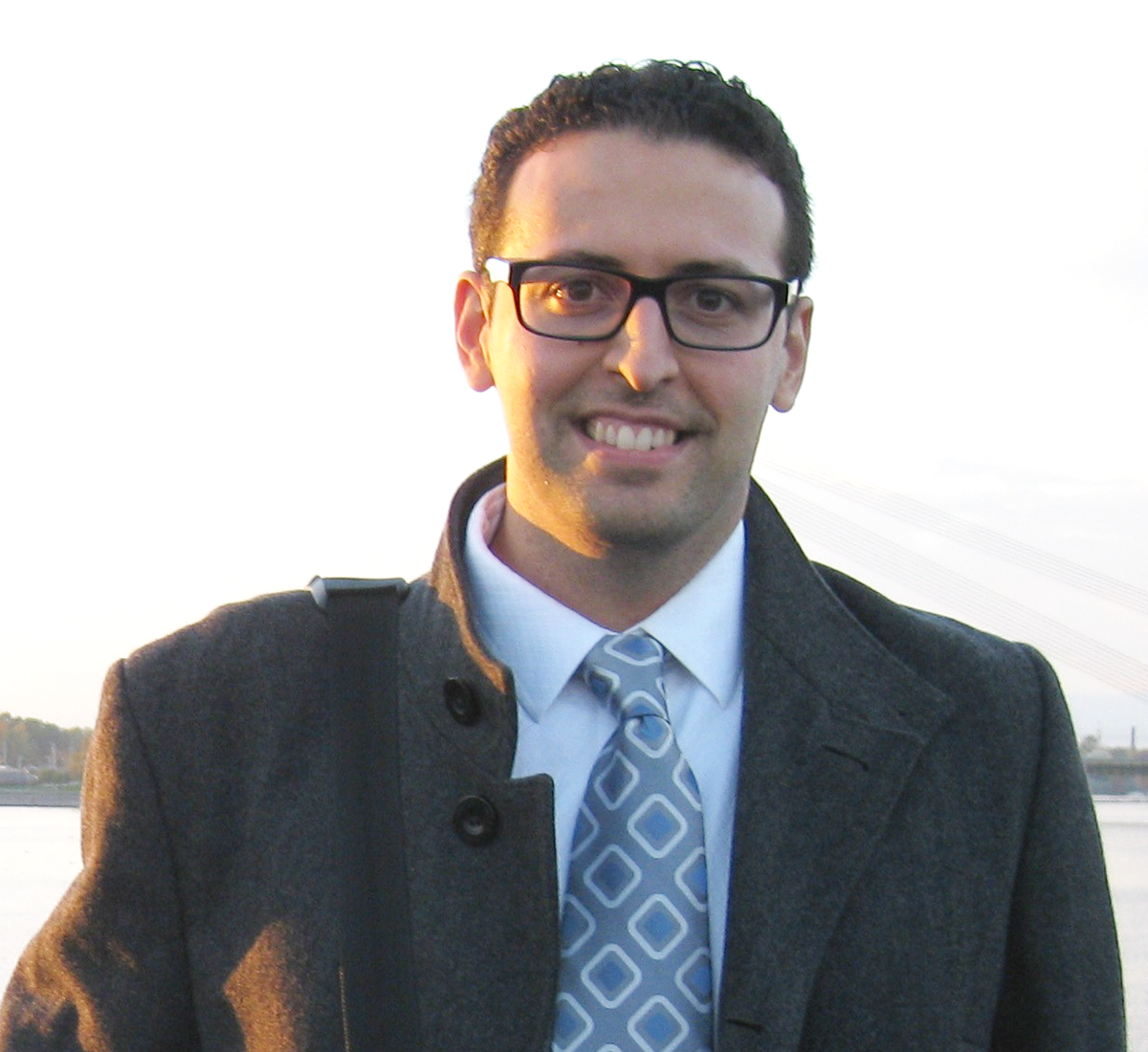
Developing next-gen airframes
Dr. John Montesano, Associate Professor, Engineering
Modern lightweight airframes are a critical factor in making aeronautics more sustainable. Lightweighting efforts aim to improve fuel efficiency and reduce greenhouse gas emissions, while maintaining vehicle range and lowering operational costs. Lightweight structures are especially important as the sector moves toward clean hydrogen and electric propulsion systems, which come with substantial weight increases. Dr. Montesano’s research supports the development of high-performance lightweight airframes using advanced fibre-reinforced composite materials. To understand how the manufacturing process impacts the integrity of composite structures – and ensure lightweight airframes improve both safety and function – his group is developing advanced virtual simulation tools that predict failure limits and performance of composite airframes. This research is complemented by rigorous experimental testing to understand the material characteristics and validate developed simulation tools. The work addresses the lack of high-fidelity prediction tools available for composite airframes, which are critical for optimizing design and enabling virtual certification campaigns.
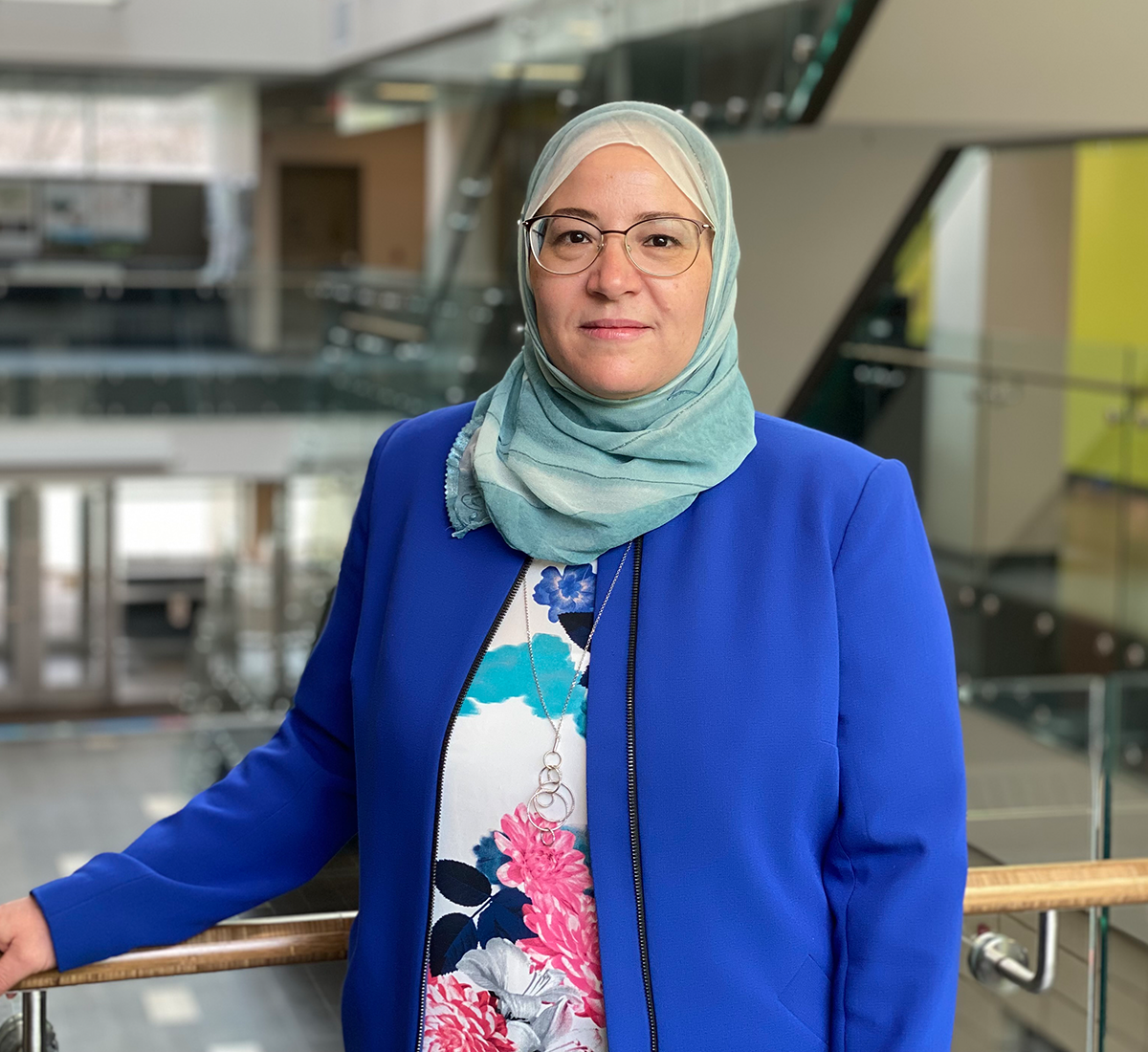
Optimizing airline operations in times of uncertainty
Dr. Fatma Gzara, Professor, Management Sciences, and Co-founder/Co-director, Waterloo Analytics and Optimization Lab (WANOPT)
The aerospace industry faces unprecedented uncertainties. Some, like weather, can be predicted with reasonable accuracy. Others, such as pandemics and natural disasters, are rare, difficult to predict and may have far deeper impacts. The ability to foresee and react to such uncertainties is key to the industry’s bottom line. With a focus on data analytics and large-scale optimization, Dr. Gzara studies systems and services under uncertainty and optimizes their operation. She combines her expertise in data-driven optimization with machine learning tools to predict uncertainties in airline operations and prescribe resilient optimal planning. Applications include incorporating flight delays for robust crew pairing, understanding the effects of crew fatigue on crew scheduling, balancing workload in flight dispatcher scheduling and optimizing traffic network planning for unmanned aerial vehicles.
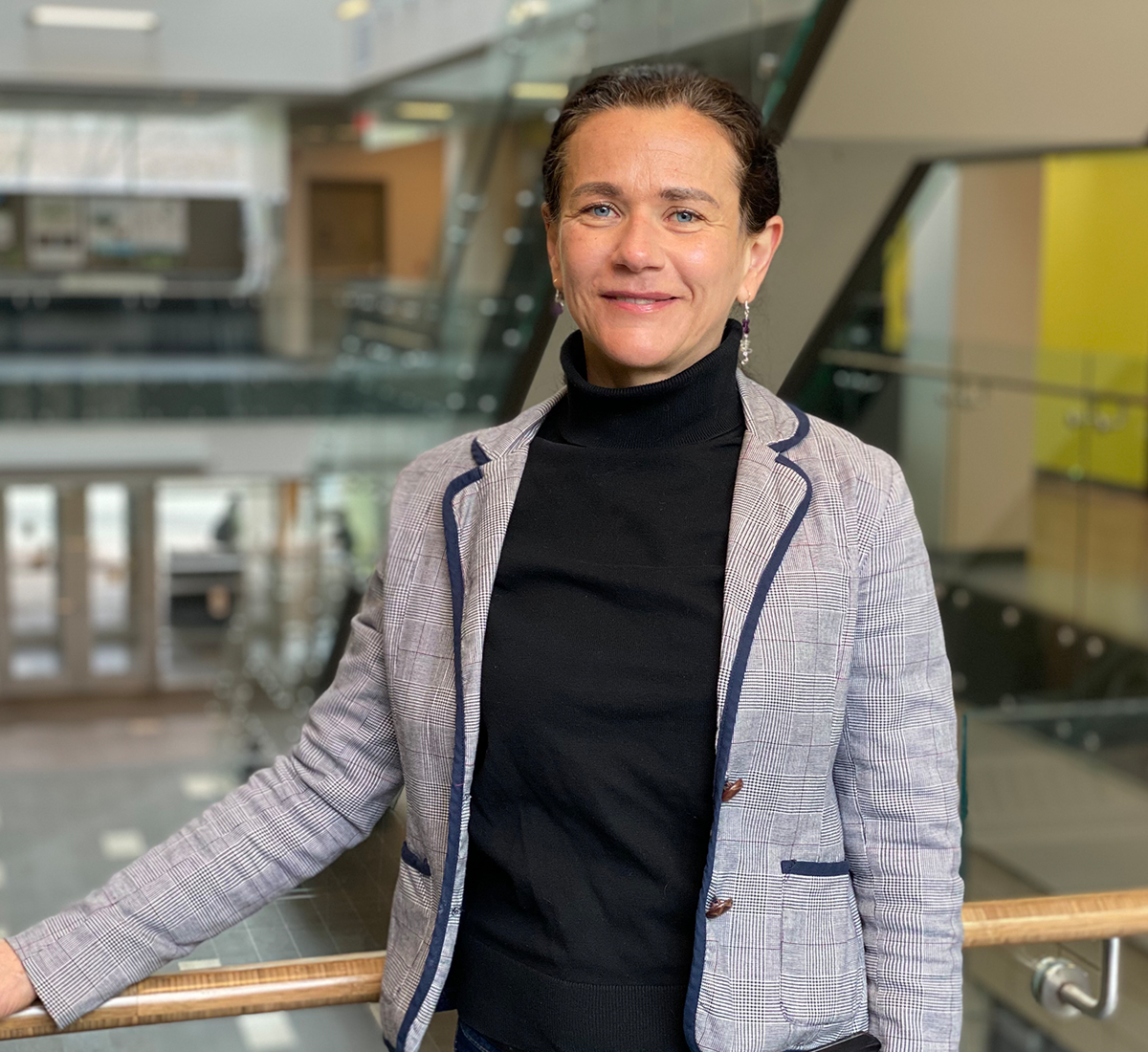
Examining gaze behaviour in pilots
Dr. Ewa Niechwiej-Szwedo, Associate Professor, Kinesiology and Health Sciences, and Director, Developmental Visuomotor Neuroscience Lab
Human error is the leading cause of airline crashes and aircraft accidents, with an estimated 88 per cent of accidents due to pilot error. Factors like fatigue, inadequate training or insufficient experience can all influence and contribute to failures in information processing and decision making that lead to pilot error. The analysis of eye movements provides insight into the perceptual and cognitive processes underlying decision making and flight performance. Dr. Niechwiej-Szwedo’s research focuses on understanding how changes in gaze behaviour in student pilots can be used as an objective tool to track skill learning and mastery during complex tasks, such as landing a plane. By helping develop and validate gaze-related metrics that could be used to evaluate pilot proficiency and advance competency-based education, her research aims to improve efficiency, effectiveness, sustainability and fairness in aviation training.
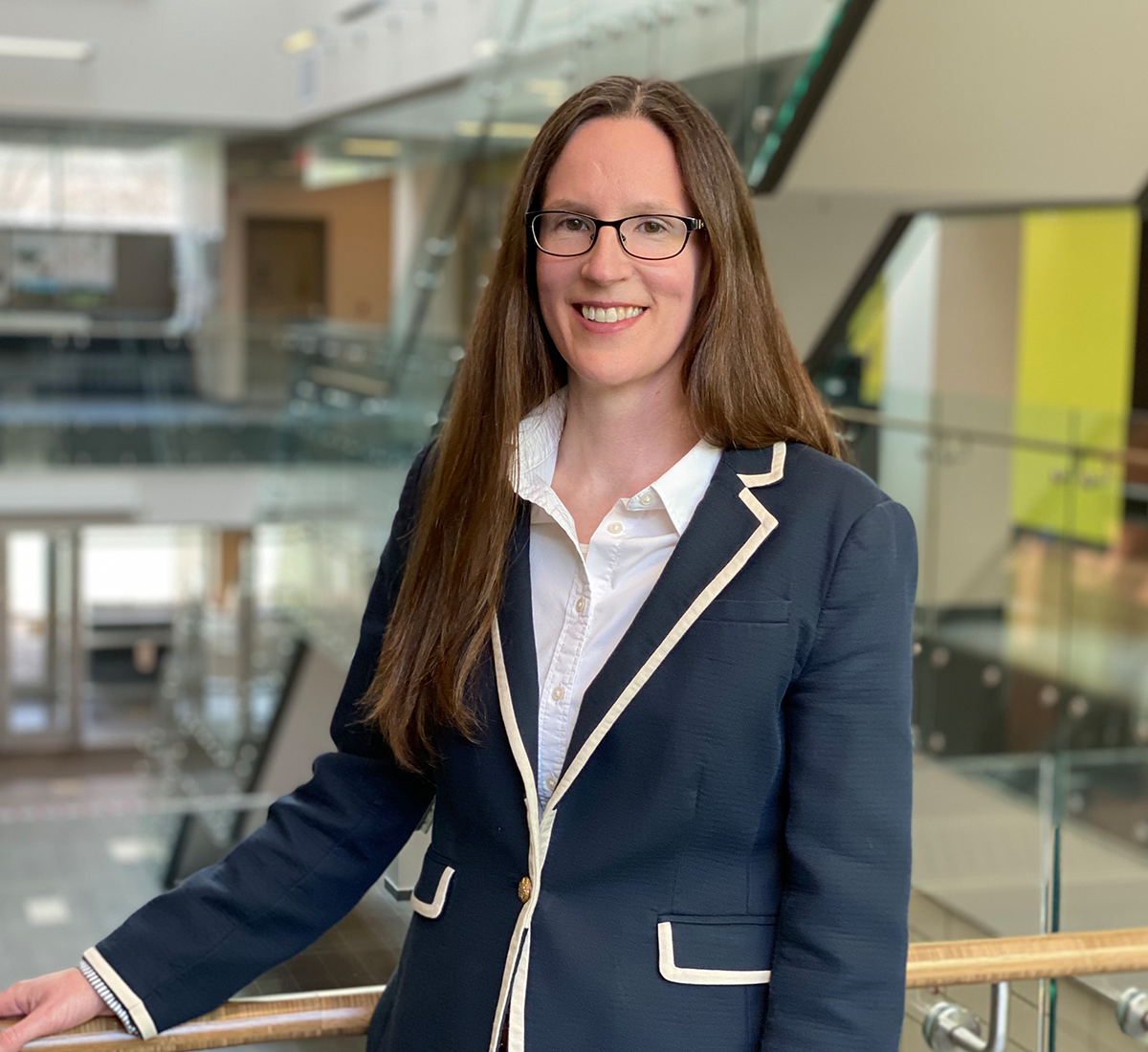
Quantifying the effects of low-carbon technology and policy
Dr. Rebecca Saari, Assistant Professor, Civil and Environmental Engineering
To support a sustainable future in aviation and other sectors, Dr. Saari and her group at the Integrated Climate and Air Impacts Research (ICAIR) Lab are working to advance our understanding of the health risks and benefits of engineering and policy responses to the threat of climate change. To do this, they develop novel, coupled, interdisciplinary modelling systems and data-driven approaches that quantify the effects of low-carbon technology and policy (e.g., clean fuel and clean energy standards) on climate change, air pollution, human health and the economy. ICAIR analysis of the health impacts of climate policy has been requested by White House staff, cited by the head of the U.S. Environmental Protection Agency in the press (including CBC, NBC and the New York Times) and used to support climate legislation in U.S. federal court. The ultimate objective of ICAIR is to advance modelling methods to provide decision-makers with the tools and data they need to mount sustainable responses to the climate crisis.
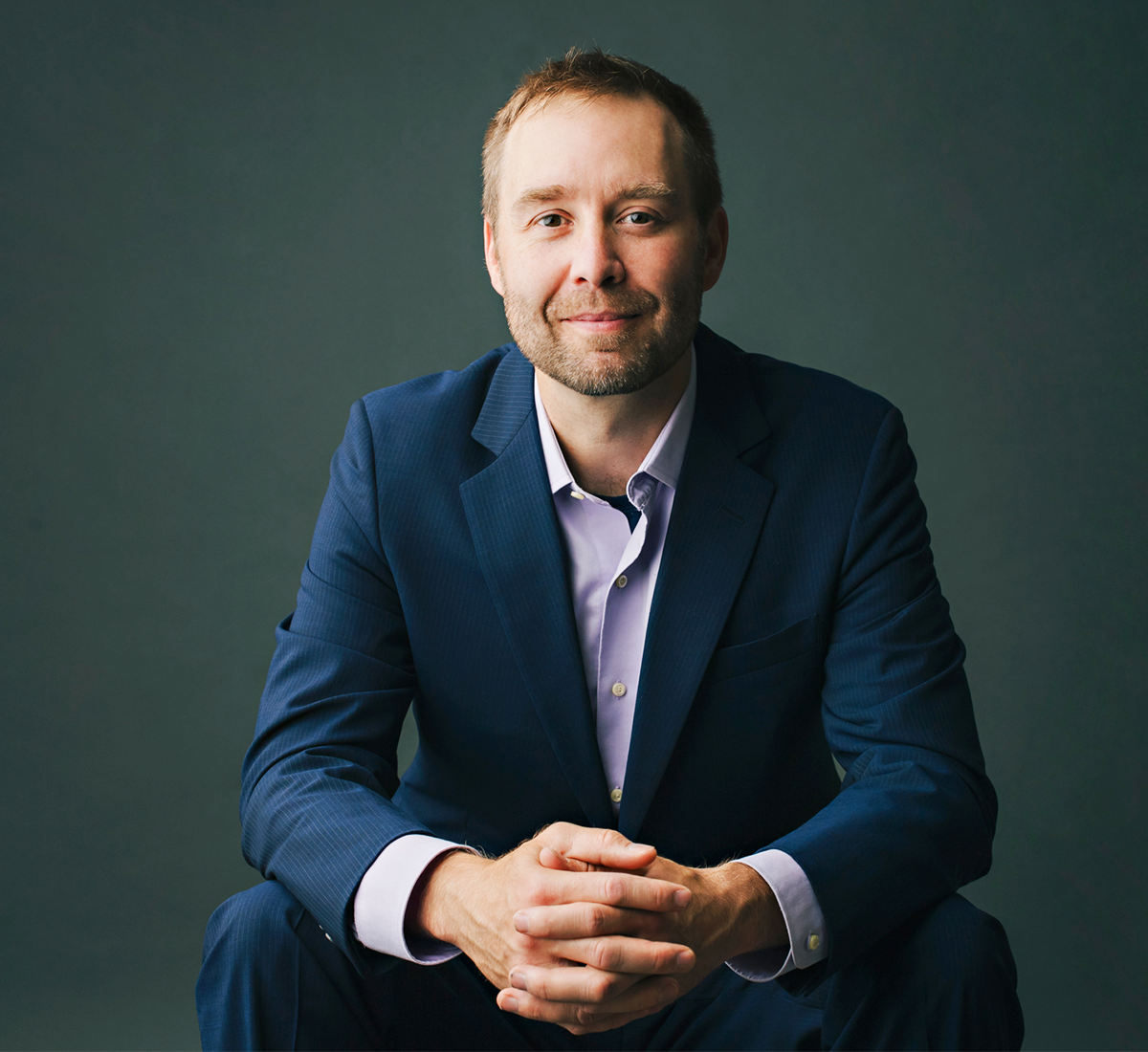
Advancing natural science at decision-making scales with remotely piloted aircraft
Dr. Derek Robinson, Associate Professor, Geography and Environmental Management
Contemporary challenges facing society are often associated with interactions between human and natural systems. Due to the complexity within and between these systems, models are used to formalize our understanding about how humans make decisions and how the environment operates. However, environmental models often operate at a scale (e.g., watershed) that is much coarser than the scale at which humans make decisions (e.g., farm field or property parcel). Dr. Robinson's research program uses remotely piloted aircraft to address this problem by collecting very fine resolution data that can be used to evaluate environmental models at farm-field and property-parcel scales. Applications of these data are broad and have included quantifying farm-field soil erosion, identifying individual plants (e.g., milkweed for monarch habitat), measuring urban tree-cover carbon, and generating micro-topography to map urban stormwater runoff.
Building resources and capacity
In 2021-22, WISA’s research and advancement funding applications totaled over $8 million.
$1.88M
awarded
$2.37M
in development
$3.1M
submitted, under review
$1M
submitted, deferred
News highlights from a year of impact
The last year held plenty of challenges and opportunities. As the pandemic continued to take its toll on the air sector, WISA researchers answered the call to drive novel, sustainable solutions. Here are some of our top news stories from the past year.
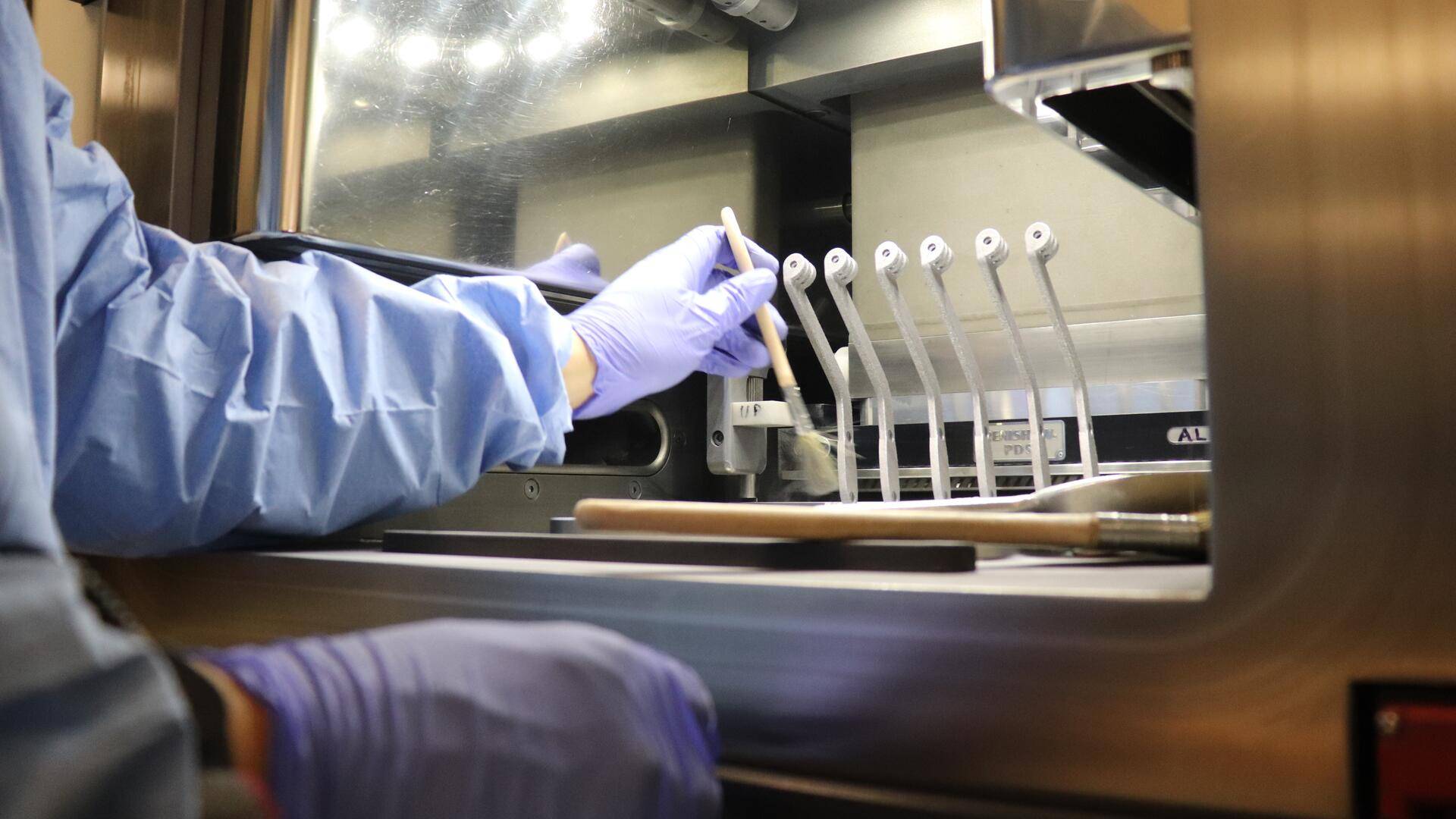
Aviation parts made one at a time, any time, just in time
With its ability to deliver high-value, low-volume parts and components, additive manufacturing (AM) is a perfect fit for the specialized needs and demands of the aeronautics industry. In the case of aging aircraft, AM enables the manufacture of innovative and customized components to optimize functionality. It can also supply replacement parts that are no longer mass produced, dramatically reducing costs and increasing efficiency. Projects and research related to aeronautics already account for about 25 per cent of the work at the Multi-Scale Additive Manufacturing (MSAM) Lab at Waterloo Engineering. By partnering with WISA, leaders there see even more opportunities to consolidate competencies, access high-level collaborative grants, and make a positive impact.
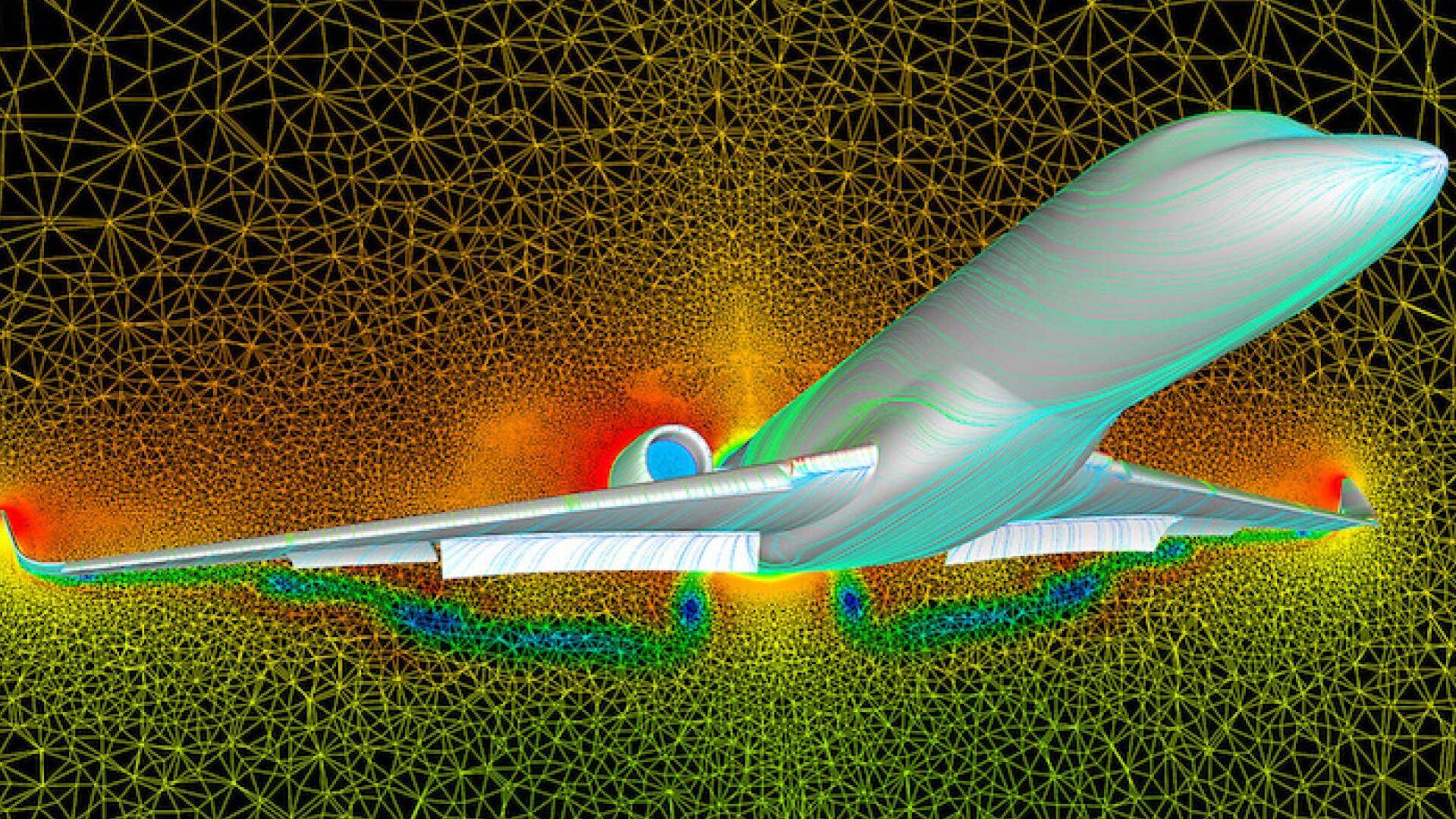
Aerodynamics informing aeronautical sustainability
Creating more aerodynamic planes and reducing drag has the potential to decrease environmental impact in the form of carbon emissions. Dr. Sander Rhebergen, an associate professor in the Department of Applied Mathematics, specializes in computational fluid dynamics – a research area that can support design innovation for aircrafts, including electric planes. Research in fluid dynamics looks at the ways flow and resistance operate in liquids, gases, and plasmas. With computational fluid dynamics, researchers use computer simulations that describe how flow moves over an object. Rhebergen’s research, specifically, is on the algorithms that these computer simulations use. His work informs several disciplines and can be taken up by engineers and designers in various applied fields, making it a great fit for collaborative projects at WISA.
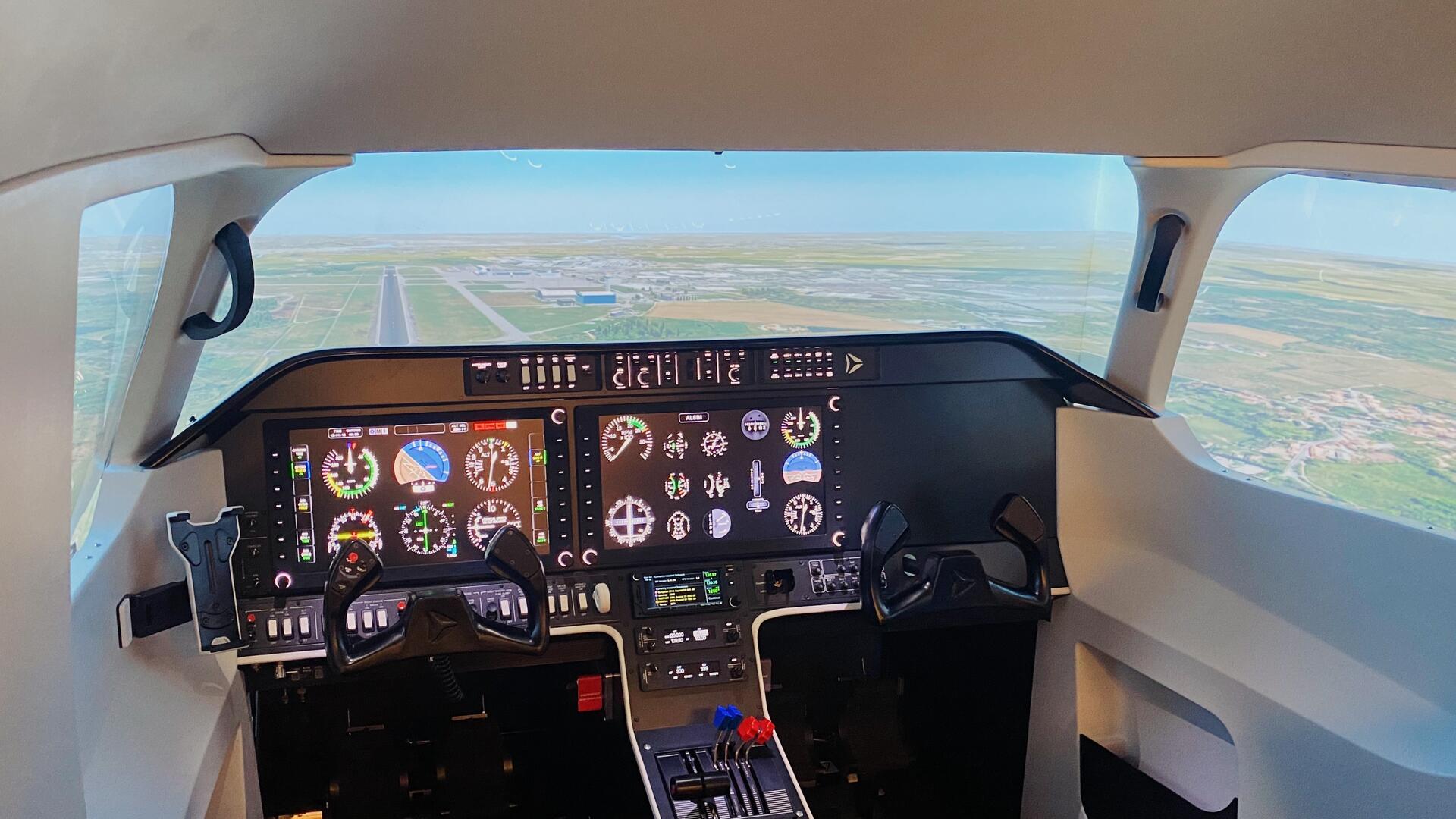
Reducing human error for passenger safety
Most aviation accidents are caused by human error. Human factors, such as eyesight, fatigue, decision-making, all pose challenges to air travel safety. Leveraging institutional strength in psychology, kinesiology and vision science, research members of WISA are working to offer evidence-based solutions to reduce pilot error. By building this comprehensive foundation of interdisciplinary research expertise, pilot training will be strengthened, and air travel will be safer for all passengers.
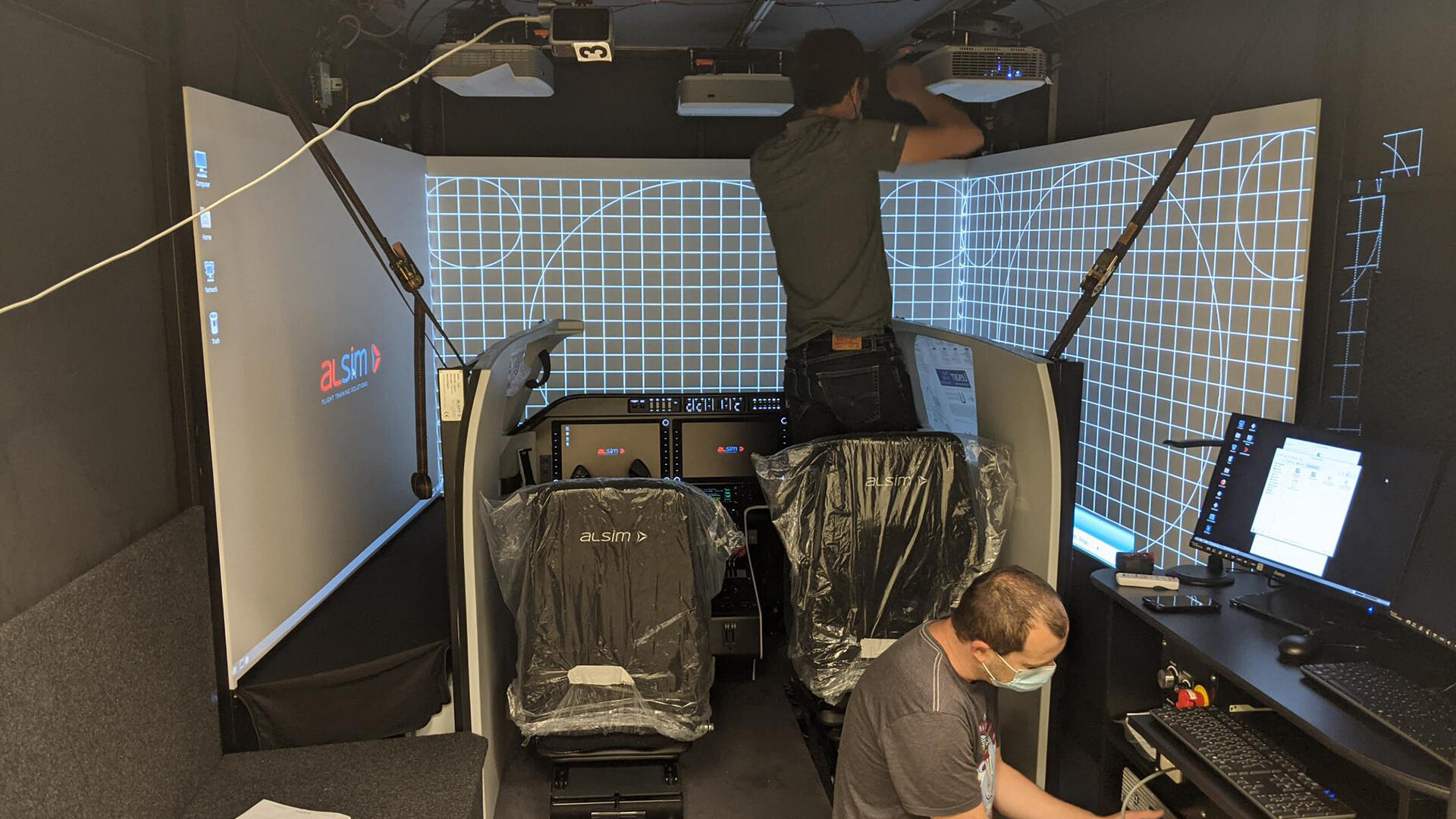
Aviation research takes off virtually on campus
Waterloo has recently undertaken a significant step forward in promoting aviation research on campus, through the purchase of a new flight simulator, intended to give researchers priority access. Although flight simulators are common within flight school settings – including the Waterloo Wellington Flight Centre – they usually prioritize student flight training instead of research efforts. Supporting the work of WISA researchers, the Alsim AL250 flight simulator will open the skies virtually to researchers looking to expand their work into the air sector.
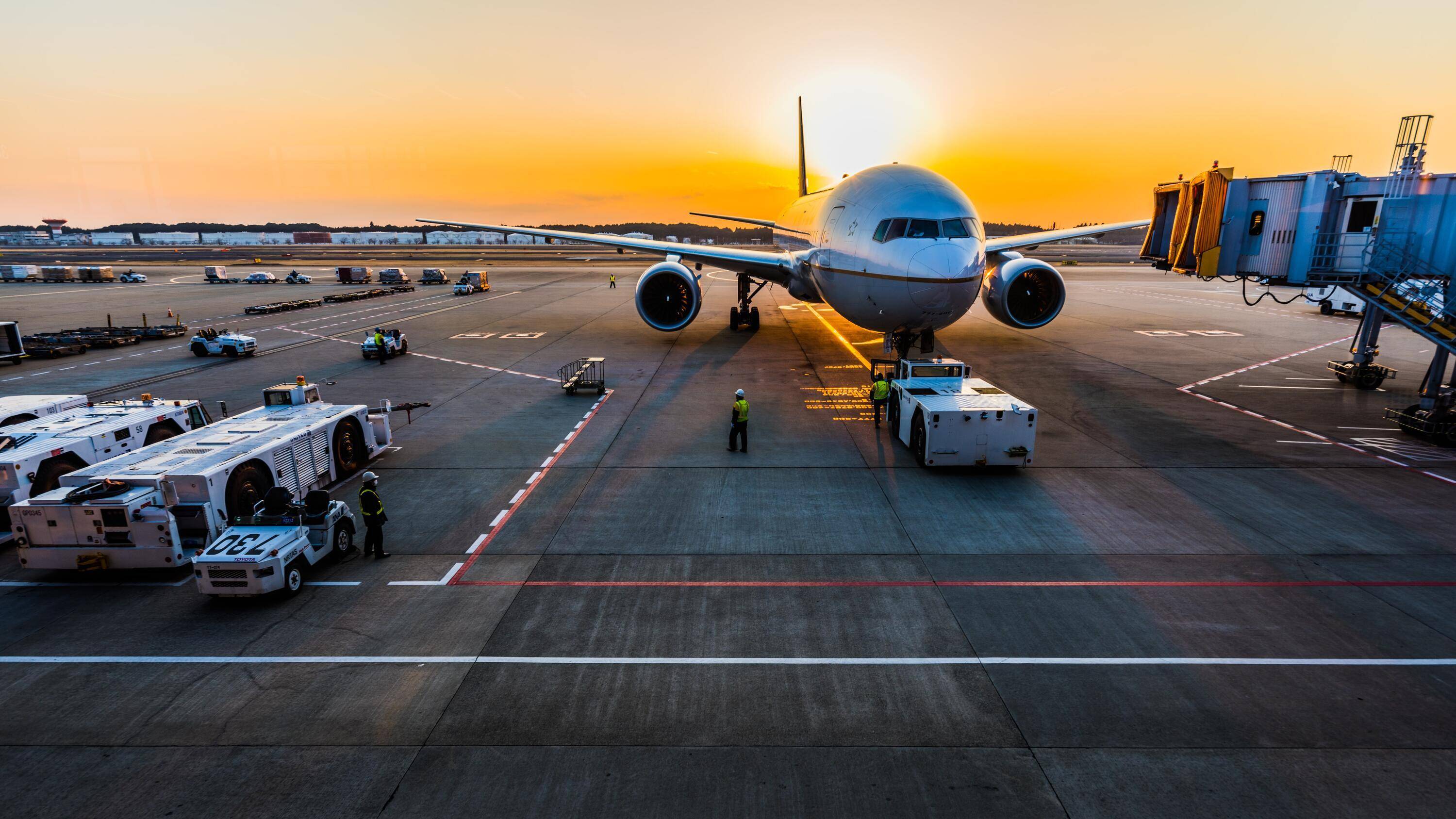
Air travel isn’t going anywhere, so Waterloo is making it sustainable
From electric planes to optimized routes to social equity, WISA is leading the charge for a cleaner, greener, more sustainable air transport sector. “As we emerge from closed borders and lockdowns, aviation will play a critical role in reigniting the global economy by transporting goods, humanitarian aid, vaccines, and connecting us in person once again,” says WISA Founding Director, Dr. Suzanne Kearns. “Now is the time to research, collect evidence, prepare a new generation of aviation professionals and innovate for a future in an industry in need of sustainable practices.”
